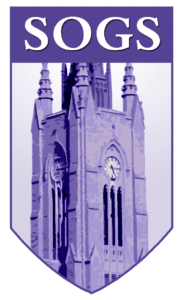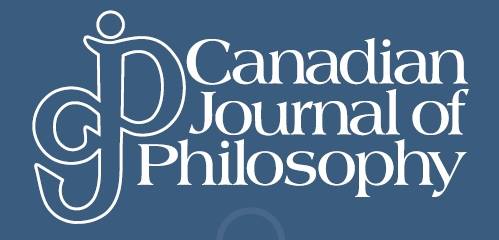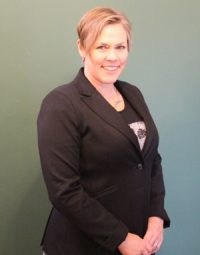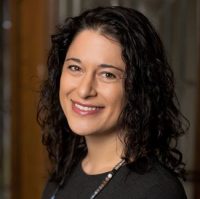

Rotman Graduate Student Conference (RGSC2022): Models and Idealizations
12 May 2022 - 13 May 2022
The Rotman Institute of Philosophy is excited to announce the second annual Rotman Graduate Student Conference, taking place on Thursday May 12 and Friday May 13, 2022. We are pleased to announce Philosopher, Dr. Angela Potochnik (University of Cincinnati) and Professor of Astronomy, Dr. Sarah Gallagher (Western University) as our keynote speakers.
This will be a hybrid conference with in-person or virtual attendance options available. Attendance is free, but for planning purposes, advance registration is required and must be completed prior to May 4, 2022.
Please direct any questions about your registration to rgsc@uwo.ca.
All times are in EDT
Thursday, May 12, 2022
| 10:00 am | Introduction and welcome message from Co-Chairs |
|---|---|
| 10:15 am |
Normative Models in Social Epistemology: An Alternative Assessment Virtual Presentation Matthijs King, Cambridge University |
| 11:15 am | Break |
| 11:30 am |
There Cannot be a Mechanism-Only Theory of Computation Danielle Williams, University of California, Davis |
| 12:30 pm | Lunch |
| 1:30 pm |
Finding Normality in Abnormality: On Ascribing Normal Functions to Parts of Cancer Virtual Presentation Seth Goldwasser, University of Pittsburgh |
| 2:30 pm | Break |
| 2:45 pm |
Idealization And Explanation in Theoretical Computer Science Virtual Presentation Andre Curtis-Trudel, Ohio State University |
| 3:45 pm | Break |
| 4:00 pm |
Truth And Reality: How to be a Scientific Realist Without Believing Scientific Theories Should be True Keynote Speaker: Dr. Angela Potochnik, University of Cincinnati |
Friday, May 13, 2022
| 10:00 am |
Unsupervised Discoveries, Understanding, and Semantic Opacity Virtual Presentation Phillip Kieval, Cambridge University |
|---|---|
| 11:00 am | Break |
| 11:15 am | Husserl’s Phenomenological Critique of the Physical Sciences: A Response, Given Hardy’s Interpretation of the Crisis Matthew Brewer, Boston University |
| 12:15 pm | Lunch |
| 1:15 pm |
Asymptotic Reasoning in Black Hole Modeling and Explanation
Yichen Luo, Western University |
| 2:15 pm | Break |
| 2:30 pm |
What’s in a Survey? Simulation-Induced Selection Effects in Astronomy Keynote Speaker: Dr. Sarah Gallagher, Western University |
| 4:00 pm | Break |
| 4:15 pm |
Idealization, De-Idealization, and Mechanistic Modeling Virtual Presentation Lauren Wilson, University of Minnesota |
What’s In a Survey? Simulation-Induced Selection Effects in Astronomy
Sarah Gallagher, Western University
Abstract: Observational astronomy is plagued with selection effects that must be taken into account when interpreting data from astronomical surveys. Because of the physical limitations of observing time and instrument sensitivity, datasets are rarely complete. However, determining specifically what is missing from any sample is not always straightforward. For example, there are always more faint objects (such as galaxies) than bright ones in any brightness-limited sample, but faint objects may not be of the same kind as bright ones. Assuming they are can lead to underestimating or mischaracterizing the population of objects near the boundary of what can be detected. Similarly, starting with nearby objects that can be well observed and assuming that objects much farther away are of the same kind can lead us astray. Computer simulations of a population can be used as inputs to create “mock” observations for characterizing and accounting for selection effects. However, sometimes the simulations themselves create unintended selection effects when the limits of what can be reasonably simulated lead astronomers to lean towards certain explanations for observed phenomena.
Speaker Bio: Sarah Gallagher is a Professor in Physics and Astronomy and current director of the Western Institute for Earth and Space Exploration. Her research focuses on studying growing supermassive black holes at the centres of distant galaxies and the interactions between galaxies in crowded environments. She has over 100 refereed papers that include data from 10 different space observatories, and her research has been recognized with an Ontario Early Career Researcher Award and a Western University Faculty Scholar Award. She regularly speaks to the public of all ages about black holes and other wonders of the universe. As a federal departmental science advisor, she is engaged on issues related to science policy and open science and was a co-founder of CanCOVID, the rapid-response research network established to support the Canadian pandemic research response effort.
Truth and Reality: How to be a scientific realist without believing scientific theories should be true
Angela Potochnik, University of Cincinnati
Abstract: Scientific realism is a thesis about the success of science. Most traditionally: science has been so successful at prediction and guiding action because its best theories are true (or approximately true, or increasing in their degree of truth). If science is in the business of doing its best to generate true theories, then we should turn to those theories for explanatory knowledge, predictions, and guidance of our actions and decisions. Views that are popular in contemporary philosophy of science about scientific modeling and the centrality of idealization create several challenges for this traditional form of scientific realism. Yet the basic idea behind scientific realism that science has been and will continue to be epistemically successful is deeply appealing. This chapter explores the challenges posed by idealization and scientific modeling to motivate a scientific realism fully divorced from the idea that science is in the business of generating true theories. On he resulting view, the objects of scientific knowledge are causal patterns, so this knowledge only ever provides partial, simplified accounts of a complex reality. This variety of selective realism better accommodates the nature of our present-day scientific successes and offers an interpretation of scientific progress that resists the antirealist’s pessimism. This also opens up an important dimension of the analysis of scientific findings that is too often overlooked: what varieties of scientific knowledge are worth pursuing.
Speaker Bio: Angela Potochnik is Professor of Philosophy and Director of the Center for Public Engagement with Science at the University of Cincinnati. Her research addresses the nature of science and its successes, the relationships between science and the public, and methods in population biology. She is the author of Idealization and the Aims of Science (2017) and coauthor of Recipes for Science (2018), an introduction to scientific methods and reasoning. She earned her PhD from Stanford University in 2007.
Travel to London
The local airport code is YXU (London, Ontario, Canada). It can sometimes be less expensive to fly into either Toronto or Detroit, then take ground transit to London. An airport shuttle van (Robert Q) runs from either airport, and a train (Via Rail) goes from Toronto to London.
Accommodations
RGSC 2022 attendees are able to book rooms in a Western student residence (Ontario Hall) at an exclusive rate for the conference. Semi-Private Rooms are equipped with two lockable bedrooms and a washroom shared between two people. The rate with breakfast included is $60 CAD/night or $45/night without breakfast (plus applicable taxes). Parking and wi-fi are included with your reservation.
Book a semi-private room at Ontario Hall.
Other options include Guest House on the Mount (2.3 km from campus; rooms from $49/night) or the Ivey Spencer Leadership Centre (2.9 km from campus; rooms from $129/night).
Code of Conduct
By registering to attend this conference, all attendees (both in-person and virtual) are expected to abide by the code of conduct for this event. Please review the code of conduct prior to attending.
The theme of this year’s conference is “Models and Idealizations”, and will focus on metaphysical, epistemological, and conceptual aspects regarding the use of models and idealizations in the sciences. We encourage graduate students to submit original papers that address important problems or are motivated by questions concerning models and idealizations, broadly construed.
Submission Guidelines:
- Submissions are accepted through: https://easychair.org/conferences/?conf=rgsc2022
- Maximum 5000 words, including footnotes and appendices (but not references). If the paper includes tables, figures, or equations, an appropriate number of words should be subtracted from the limit.
- Papers should be accompanied by an abstract that is no longer than 300 words.
- Papers are to be prepared for anonymous review (meaning your name should not appear within the paper).
Deadline extended to Friday, March 4th, 2022
Accepted Papers: Each presenter will be allocated an hour-long time slot; presentations should be approximately 30 minutes long with 30 minutes for a Q&A period
Examples of topics may include but are not limited to:
- Conceptual engineering as it relates to models, simulations, and idealizations in the sciences and social sciences.
- Methodological implications of idealized models.
- The role of idealizations in the explanation of the behavior of complex systems.
- The classification of scientific idealizations.
Please send any questions to the RGSC2022 Committee: rgsc@uwo.ca
All the best,
The RGSC2022 Committee
RGSC2022 Organizing Committee Members:
Clair Baleshta, Pavle Jovanovic, Jaipreet Mattu, Veljko Simovic & Martin Zelko
Support for RGSC2022 has been provided in part by the Rotman Institute of Philosophy, by a conference grant awarded from the Canadian Journal of Philosophy, and additional generous support from the following departments at Western University:









